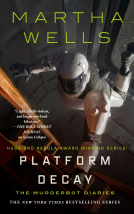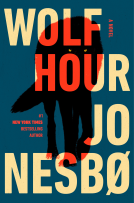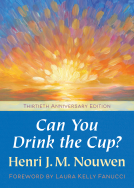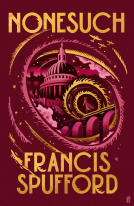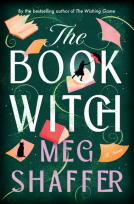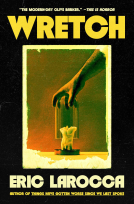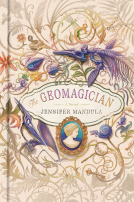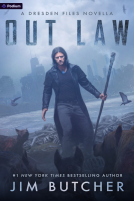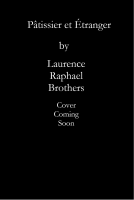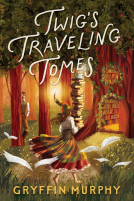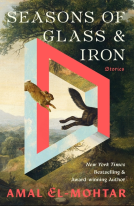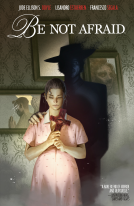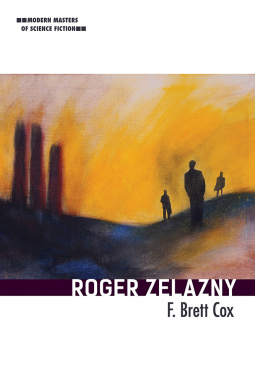
Roger Zelazny
by F. Brett Cox
This title was previously available on NetGalley and is now archived.
Send NetGalley books directly to your Kindle or Kindle app
1
To read on a Kindle or Kindle app, please add kindle@netgalley.com as an approved email address to receive files in your Amazon account. Click here for step-by-step instructions.
2
Also find your Kindle email address within your Amazon account, and enter it here.
Pub Date May 11 2021 | Archive Date Mar 03 2021
Talking about this book? Use #RogerZelazny #NetGalley. More hashtag tips!
Description
Roger Zelazny combined poetic prose with fearless literary ambition to become one of the most influential science fiction writers of the 1960s. Yet many critics found his later novels underachieving and his turn to fantasy a disappointment. F. Brett Cox surveys the landscape of Zelazny's creative life and contradictions. Launched by the classic 1963 short story "A Rose for Ecclesiastes," Zelazny soon won the Hugo Award for Best Novel with …And Call Me Conrad and two years later won again for Lord of Light. Cox looks at the author's overnight success and follows Zelazny into a period of continued formal experimentation, the commercial triumph of the Amber sword and sorcery novels, and renewed acclaim for Hugo-winning novellas such as "Home Is the Hangman" and "24 Views of Mt. Fuji, by Hokusai." Throughout, Cox analyzes aspects of Zelazny's art, from his preference for poetically alienated protagonists to the ways his plots reflected his determined individualism.
Clear-eyed and detailed, Roger Zelazny provides an up-to-date reconsideration of an often-misunderstood SF maverick.
Available Editions
| EDITION | Other Format |
| ISBN | 9780252085758 |
| PRICE | $27.95 (USD) |
| PAGES | 224 |
Links
Average rating from 6 members
Featured Reviews
F. Brett Cox offers an intriguing look into the work of Roger Zelazny. This is a thoughtful and critical examination of an author worth studying.
This book is by an academic, so of course it reexamines the received wisdom about its subject and says, "Wait on, there's more to it than that."
Which, in this case, is no bad thing. Nor is it written in a high academic style; it should be easily accessible to anyone who enjoys Zelazny's fiction.
I myself am a huge Zelazny fan; I have read all but one of his novels (<i>Bridge of Ashes</i> being the exception), and a number of the short stories in one collection or another, and I own most of them in the form of battered second-hand paperbacks, each of which I've read several times, and some a lot more often. So I was pleased to see that the author of this book is questioning the idea that Zelazny failed to live up to his early promise and became an excessively "commercial" writer, pushing out books quickly to make a living and leaving them with inadequate depth and development.
It's not that there's no truth to that at all, of course, but what some critics saw as the author not doing enough work the author himself apparently saw as trusting the reader to do that work; a phrase in his letters about making up his mind to stop after he's shown a thing to the reader and not go on piling up the verbiage is quoted several times. Personally, I've always enjoyed his lean prose: the way he can evoke a person or a place with a couple of memorable lines and then move on with the story; the way he never wrote a really long book, and yet his best books seem epic in scope.
Could he (as Joanna Russ complained) have spent more time writing "the story inside the story"? Certainly he could, but that wasn't necessarily what he was setting out to do, or what his readers wanted of him.
This book includes a fascinating interview, in which Zelazny talks about how he experimented in every book, usually working on something he saw as a weakness, and how he always tried to put in enough of what he knew he could do well that if it turned out that his experimental part didn't work, the book as a whole still had a good chance of working. I think that's why, to me, his books always seem fresh and adventurous, boldly exploring premises that most writers wouldn't be capable of coming up with, let alone doing justice to. Even with Dilvish the Damned, the most stereotypically sword-and-sorcery of his series, which he admitted he kept around to have something easy to work on, he wasn't just trudging through the tropes and making it out of box mix; there's a sense of wonder even in those stories.
So this book got me thinking about that. It also brought to my attention that a lot of Zelazny's main characters, especially early on, are violent revolutionaries/terrorists, something I hadn't been conscious of. He also began writing women who had arcs and protagonism towards the end of his career (a major valid complaint about his early work is that the women are more or less furniture, not that many other male authors of the time were doing any better), which I had to have pointed out to me; I'd got used to thinking that he couldn't write women with any agency.
Something I was watching for, but didn't see, was a discussion of how so many of his characters have an absent father figure or are otherwise obsessed with their fathers (like Tak in <i>Lord of Light</i>). There's a brief mention of how important fathers often are in the stories, but it doesn't draw out that these are often <i>missing</i> fathers, the ultimate example being the main character in <i>Doorways in the Sand</i>: not only is he an orphan, but his substitute father figure (his uncle) is also absent for most of the book, and the uncle's return is an important turning point. See also Corwin, Merlin, and the young man in <i>Roadmarks</i>, to give a non-exhaustive list. Still, it's a relatively brief book, and it can't drill down into every theme of Zelazny's.
What it did do, for me, was give an interesting chronological discussion of Zelazny's life (briefly) and work (in some depth); show me some trends and developments I'd missed, partly through reading the books in no particular order; get me thinking about my own writing and what I want it to be; and, of course, make me want to re-read some Zelazny.
I received a pre-publication version for review via Netgalley.
Oooh, it's been a while since I've read a critical monograph. Or at least one on a whole author, as against a BFI or 33 1/3 on an individual work. And yes, there's a very thin and porous line between these and literary biographies, but somehow you can tell, can't you, if only through the lexical code of that unglamorous cover. Cox, bless him, does his absolute best to set out his stall as something of a revisionist, arguing against the received wisdom that Zelazny was an SF prodigy who, once he turned pro, allowed himself to subside into a hack fantasy writer - but as the book goes on you can sense his enthusiasm for his thesis ebbing; when Cox talks about A Rose For Ecclesiastes or Lord Of Light, there's a fire and spark that's entirely ebbing by the time he's trudging through unavoidable potted plot summaries of the Amber books, doggedly attempting to find points of interest in unpromising territory like the literary equivalent of a tourist guide to Swindon. And that's somewhere around books 3-5 of Amber, never mind its subsequent continuation. All the same, Cox does make a compelling case that even at his most commercial, Zelazny never stopped experimenting, always content with having done so even when critics and/or readers weren't terribly keen on the results. And as with the classic 'Where did it all go wrong, Mr Best?' story, it's hard to entirely buy into a narrative of wasted promise when right to the end Zelazny seemed so content with both life and work: there's a telling anecdote in which his daughter recalls him coming out of his office and announcing "God *damn* I'm good at what I do." And, albeit inconsistently so, he really was.
In general, even if the argument Cox claimed he was going to make doesn't fully survive contact with reality, he has plenty to say about the recurring themes within Zelazny's work. "To fully understand the energy and power of Zelazny's best work requires the reader to move beyond the well-analyzed issues of myth, immortality, and the hard-boiled hero and consider also the steady movement within those works from maintaining individual autonomy via terroristic violence to existing within a larger community, from blowing the system up to living within it." Which on the one hand I applaud, and lords know there are plenty of people who could do with convincing of that nowadays – but equally, as an artistic journey it does sound like a summary of what went wrong with everyone from Wordsworth to the Stones. Cox has definitely done his homework, delving into Zelazny's output right back to his master's thesis 'Two Traditions And Cyril Tourneur: An Examination Of Morality And Humor Comedy Conventions In 'The Revenger's Tragedy'" – which his supervisor refused to submit, and doesn't that just make it even more tempting a prospect? And which also shows how early the fascination with dubiously heroic protagonists took him. More than that, though, Cox's book is clearly grounded in a thorough excavation of the reviews and commentary around each significant Zelazny publication, both mainstream and within SF fandom, which is interesting in the simple terms of tracking the rise and fall of his reputation, but also yields gems such as this, from a Fantasy & Science Fiction review by Sidney Coleman: "For Zelazny's purposes, a solid world would be as useless an object as a solid violin. The function of the thing is to resonate." One figure who keeps cropping up is Samuel Delany, a name often paired with Zelazny's for reasons beyond assonance, and who demonstrates the insight into his peer that you'd expect: 'Delany notes that Zelazny's early work, unlike the classic view of immortality as more curse than blessing, suggests that within an infinitely long life, "each moment becomes infinitely fascinating because there is so much more to relate it to; each event will take on new harmonies as it is struck by the overtones of history and like experiences before... No other writer... can evoke so much hunger for the stuff of living itself." Which is of course so much more interesting, because mortals saying they never wanted immortality anyway is about as convincing as humans writing stories where Batman beats Superman. Hell, these days in particular, who could look without envy at the Set from Zelazny's The Graveyard Heart, who use suspended animation to become "like those gods of old who appeared at the rites of the equinoxes, slept between processions, and were remanifest with each new season, the bulk of humanity living through all those dreary days that lay between"?
If there's a flaw here, it lies in very occasional missteps regarding the wider context. So Cox is very good on Zelazny, and good on material relating to Zelazny at one remove, but beyond that will occasionally apply a broad brush he shouldn't, as when he says, regarding Corwin in the first Amber book, that "the glibly erudite, cynical, physically gifted but emotionally challenged protagonist" is already recognisably Zelazny, but "not a character or voice traditionally associated with the high fantasy tradition". At which, especially as a James Branch Cabell fan, I cannot help but snort. Still, this is a minor complaint. Though in terms of the overall reading experience, it probably helps this book that, after all that output neither Cox nor I wanted to think very much about, Zelazny did at least exit on a high with the delightful A Night In The Lonesome October. On which Cox can expand, his initial enthusiasm returning, as he points out exactly why this late novel has garnered a devoted fanbase all of its own – yet also, in among the celebration, still find useful observations to make. For instance, given we have seen that the default Zelazny protagonist was "a long-lived adventurer of poetic inclination uncertain of his place in the universe", isn't it interesting that here at the end he proved that he really was still experimenting, because rather than write from the point of view of the immortal Jack the Ripper, or one of his fellow players in the game, he told us the story as seen by the Ripper's dog?
Rounding out the book, along with a bibliography and such, there's also an amusingly combative interview in which, even in 1972, the questions open with a strong assumption that Zelazny is now just churning 'em out, to which he responds with wit and grace throughout - including, at one point, a paragraph which the interviewers acknowledge as the most elegant 'no comment' they've ever seen. Although when he talks about always wanting to keep experimenting, not just doing more of the same, you can hear the future ghost of at least the second half of Amber snickering at the door. Still, that notwithstanding, this book reminded me how much great work he did – to some of which I can still look forward.
(Netgalley ARC)
 Ola G, Reviewer
Ola G, Reviewer
7/10 stars
My full review can be found on my blog (link attached).
A brand-new critical monograph on one of my favourite SFF authors – how could I resist? 😉
Cox's writing is simple and informative, and very approachable considering the inherently academic character of his book. There’s obviously a long, quite exhaustive bibliography and a satisfactory amount of footnotes, but the language throughout is intentionally focused on communication instead of erudite fencing with other specialists on Zelazny’s work – maybe because, as Cox indicates, there are no other Zelazny pros and very little academic output concerning his work. It may be, as Cox suggests, that the necessary condition of passage of time has not been yet fulfilled – Zelazny’s untimely death in 1995 might seem like aeons past, but it really wasn’t that long ago 😉. And while the genre itself has undergone several changes since then, it is still difficult to separate the wheat from the chaff and conclude, with a degree of certainty, what can be considered a modern classic and what was just a work accident.
[...]
Cox’s monography is well-researched and not too prying, never straying too far into the autobiographical field, instead focusing on the literary aspects of Zelazny’s life. It’s also short, by necessity limiting itself on all aspects: there is a bit of literary criticism, but not too much; there is a bit of analysis of Zelazny’s own academic literary knowledge and writing chops, his love of poetry and theatre mentioned, but not overly dissected; there is also a rather exhaustive synthesis of what other authors and critics thought of Zelazny’s work at the time, peppered with often intriguing quotes. I have no doubt that Cox admires Zelazny’s works and skill, far more than he felt he can show it in his monograph – after all, academic work should at least strive to remain objective, which often renders it a bit lifeless. And this is what happened to Cox’s book, I’m afraid. Writing in a dry, impersonal way about the best SFF poetic novelist makes the topic itself a bit dry. Admittedly, it must be very difficult to show and analyze Zelazny’s mastery of language, his consummate skill in creating intuitive, evocative, poetically perfect descriptions and moods, clinically precise dialogue achieving exactly what he intended, his bold, rampant imagination, and the constant sense of savage fun, of loving the life itself.
Indeed, if there’s something that I missed in Cox’s very appropriate monograph, it’s this: the depiction of Zelazny’s sense of fun in creation and life as it is. Cox writes about Zelazny’s personal happiness, about his satisfaction from his own work, yes. He can wax lyrical about some of his favourite Zelazny’s books, and dutifully write something positive about those that he doesn’t like that much. And let’s be frank here, there are some Zelazny’s books I don’t like (and even more I haven’t read yet, especially his collaborative books). But I’d argue that even in Zelazny’s lesser works there’s still this sense of wonder, of adventure that stems from creating something new. Even the critically reviled five subsequent books set in Amber retain some of the creative magic – in the hypnotic descriptions of the chaotic warrens (I wonder how much Erikson lifted from Zelazny, btw), in the hallucinogenic travel from one reality to another, with the idea of reality being shattered and reassembled in front of our eyes. His most-known literary experiments, such as Creatures of Light and Darkness (1969), admirably ambitious if not entirely successful, or Eye of Cat (1982), full of poetry and fragments of broken narrative, ultimately sharing the predecessor’s fate in being very imperfect and yet laudably bold at the same time, span over a decade, and both are ultimately topped by one of Zelazny’s best books and a highly experimental one, too, A Night in Lonesome October (1993) which came nearly a quarter of century after Creatures…
[...]
All in all, with my rant over, I’ll conclude this lengthy impression on Cox’s monograph about Roger Zelazny by saying that it definitely achieved its underlying goal: it made me want to pick up another Zelazny novel or a short story collection, and once again immerse myself in the delightfully crazy ideas of the late SFF master. Cox is trying his best to convey both his admiration and some objective criticism toward Zelazny’s works, pinpointing many of the key components that form the basis of Zelazny’s literary uniqueness. It’s an accessible book, not overly academic, and based on a wealth of material. Would I enjoy a more in-depth, enthusiastic take on Zelazny, dissecting his mythological obsessions, love of archetypes, and his penchant for imbuing his characters with his own traits? Absolutely! But again, I may be in an admittedly very small minority here – and Cox’s book, short and succinct and written with apparent love for the source material, fills in an important gap.
I have received a copy of this book from the publisher through NetGalley in exchange for an honest review. My thanks.
 Reviewer 12933
Reviewer 12933
Roger Zelazny by F. Brett Cox is from the “Modern Masters of Science Fiction” series and gives what I think is an accurate overview of an author who was one of my top favorites for many years. I remember when Zelazny died in 1995; however, I had failed to remember that his age at the time was 58, which, twenty-six years later, seems far, far too young.
This description of Today We Choose Faces cogently describes Zelazny’s style:
The novel’s frantic, one-trapdoor-after-another narrative, with transitions frequently driven by explosive violence and one key sequence represented in eccentric typography, also recalls Alfred Bester, while both the narrative pacing and the underlying tale of libertarian revolt against oppressive social engineering evoke the work of A. E. van Vogt. To these classic genre influences Zelazny added his signature thematic and formal concerns: the twentieth-century man caught in the far future who struggles to negotiate its systems, violence as a means of political resistance; experimentation with narrative structure, playful puns (the names of all the clones are variations on the name of Angelo di Negri, “Black Angel”), literary allusiveness both classic and modern (the narrator quotes William Blake and references Thomas Wolfe, and the story as a whole, in the view of one critic, evokes both Dante and Milton), and the occasional three-hundred-word sentence.
The book closes with a Zelazny interview; I found this statement by him to be extremely interesting: “What I am trying to say is that I operate under a continuing need to experiment, and the nature of the experimenting requires that at least part of the time I write from weakness.” I will take these words to heart.
Readers who liked this book also liked:
L.M Montgomery
Children's Fiction, Comics, Graphic Novels, Manga, Teens & YA
Amal El-Mohtar
General Fiction (Adult), Romance, Sci Fi & Fantasy
